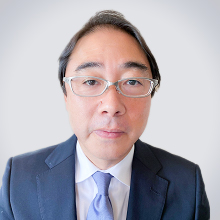Interview: Tokihiko Shimizu on the future of Japan’s financial industry
As Tokyo is making moves to strengthen its position as a financial centre, HFC’s Stefan Nilsson had a chat with Tokihiko Shimizu, the former CEO of Japan Post Investment Corporation and previously Director-General of Research at the Government Pension Investment Fund.
After having worked for big Japanese institutions such as GPIF, Japan Post and PFA, you have this year embarked on a different journey with several different advisory roles including Tokyo University of Science Investment Management’s endowment and Montana Capital Partners. Is it a very different life working for yourself than what you did earlier in your career?
As you mentioned, I have worked for big institutional investors in Japan for over a decade. I was in charge of managing multiple types of assets including traditional and alternative assets. As for alternative assets, I have covered hedge funds, real assets and private equity. Some of my remarkable achievements at GPIF were to rebalance the asset allocation and, in 2014, implement alternative investments for the first time. Through these experiences, my interest has significantly
During your career, you have lectured at several universities. Why do you teach and what about it do you enjoy the most?
I have lectured at three universities; Lecturer,
Both the Tokyo and national governments are making noises about improving Japan and Tokyo for financial firms. What, in your opinion, can Japan realistically do to make things better for asset managers, fintech firms, banks and others in our industry?
There are a number of barriers for foreign asset managers to enter the Japanese market, such as high income tax as well as language and visa issues. The Japanese government and the Tokyo Metropolitan Government have been working on improving the whole system. For example, the Japanese government usually charges individuals up to 50% income tax. However, they have decided to provide special tax schemes for hedge fund and PE managers. Their income from performance fees and carried interest will only be charged 20% tax. Having said that, I believe the Japanese financial market still needs to be more efficient. The Japanese financial market has been heavily debt-weighted compared to the US and other advanced markets which are well balanced between equity and debt. These issues have caused the low economic growth and less attractive financial market. Therefore, the Japanese financial market has to shift to a more equity-oriented money flow. I trust this is an essential step to create an advanced and attractive financial industry in Japan.
You have a lot of experience in private equity and other private markets. When it comes to alternative investments and Japanese investors, do you think we will see more allocations to private markets or will we see a comeback on the public side with hedge fund strategies and such?
I believe that the public markets and the private markets won’t conflict each other. These two spaces will complement each other to improve market efficiency as a whole. IPOs and delistings complement each other and this is the same with hedge fund investments and private investments in the long term. Recently, well-known hedge fund gatekeepers such as GCM and Aksia have entered te private equity space. Some hedge fund managers and private equity managers have been integrated into the same platform like BX and KKR, especially in the debt-related strategy area.









